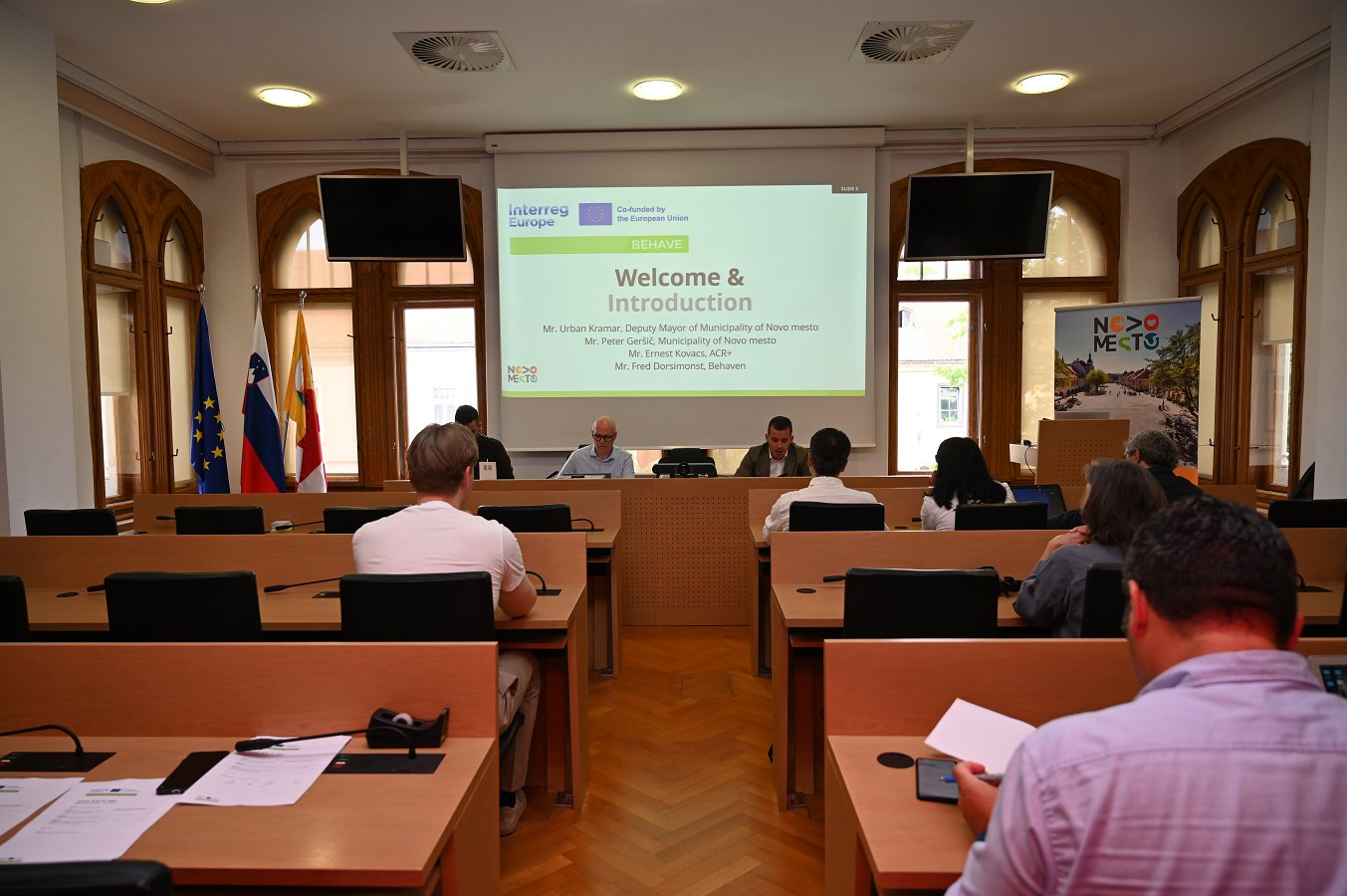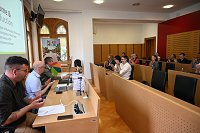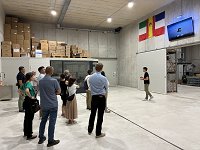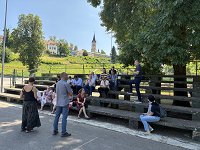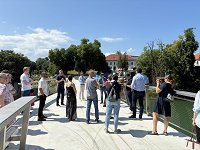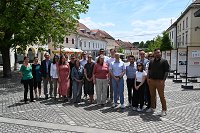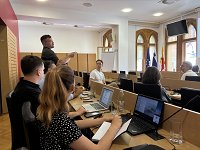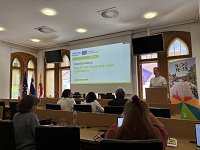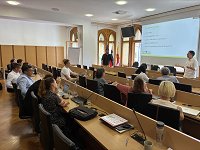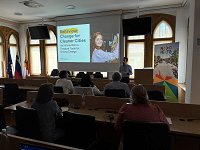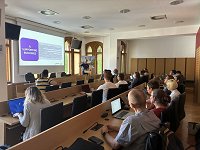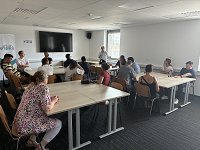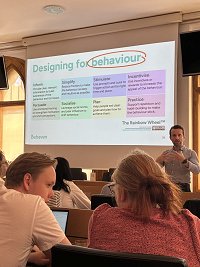Behavioral Science Inspires New Waste Management Approaches
date: 08. 07. 2025
The first partner meeting of the BEHAVE project took place on 17 and 18 June 2025 in Novo mesto (Slovenia), the project’s lead partner. Representatives from six partner organisations shared existing good practices in waste management from their local environments, participated in a training on behavioural assessment and behaviour change, learned about socio-demographic differences related to attitudes toward the circular economy, and visited the future site of the Urban Park Loka in Novo mesto, which—thanks to BEHAVE—will become a zero-waste public space.
BEHAVE focuses on high-traffic public spaces where waste management is often overlooked but holds significant potential for transformation. Waste is not only a household issue—tourist sites, parks, sports venues, cultural institutions, and events generate large volumes of waste, much of it improperly sorted. Over the course of four years, six project partners from Slovenia, Belgium, Croatia, Italy, and Norway will analyse behavioural patterns in various public spaces.
At the first study visit in Novo mesto, the partners from Brussels Environment (Belgium) presented two strong examples of how behavioural science helps change habits to support a cleaner environment: encouraging biowaste sorting through behavioural approaches, and socio-psycho-behavioural research in the field of public cleanliness. The ATA Rifiuti waste management authority from the Province of Ancona (Italy) showcased two awareness campaigns that successfully improved the quality of separate waste collection and promoted the importance of waste prevention—also highlighting the impact of the KAYT (Know-As-You-Throw) approach.
Colleagues from the Regional Development Agency of the Dubrovnik-Neretva Region (RA DUNEA) in Croatia addressed pro-environmental behaviour in tourist destinations and pointed out the lack of infrastructure for waste management. Iris Salten, the Norwegian waste management authority, focused on tourist infrastructure. They developed a fair, usage-based PAYT (Pay-As-You-Throw) system for cabins and tourists in high-tourism areas, enabling users to drop off waste at designated points and pay per use instead of a flat annual fee—an approach tailored to seasonal usage.
The host, Municipality of Novo mesto, presented two local best practices: the KEMSO project, which recycles multilayer packaging into hygienic products, and the collection of HDPE and PP plastics and lithium-ion batteries, aimed at creating local material loops and reusing collected materials in municipal projects. A representative from the local utility company Komunala Novo mesto outlined the current situation in public space waste management, highlighting both the challenges and opportunities.
Iztok Kovačič, PhD, Head of the Spatial Planning and Development Office at the Municipality of Novo mesto, presented the vision for the upcoming transformation of the Loka sports park into Urban Park Loka, a future zero-waste public space. The site visit concluded with a tour of the Circular Innovation Centre, established by the Municipality and Development Centre Novo mesto as part of the NovIKroG project, supporting organisations in circular public procurement. The day ended with a Zero Waste dinner at the emission-negative Colnar Wine Cellar, where all by-products of wine production are reused to create oil and flour from grape seeds.
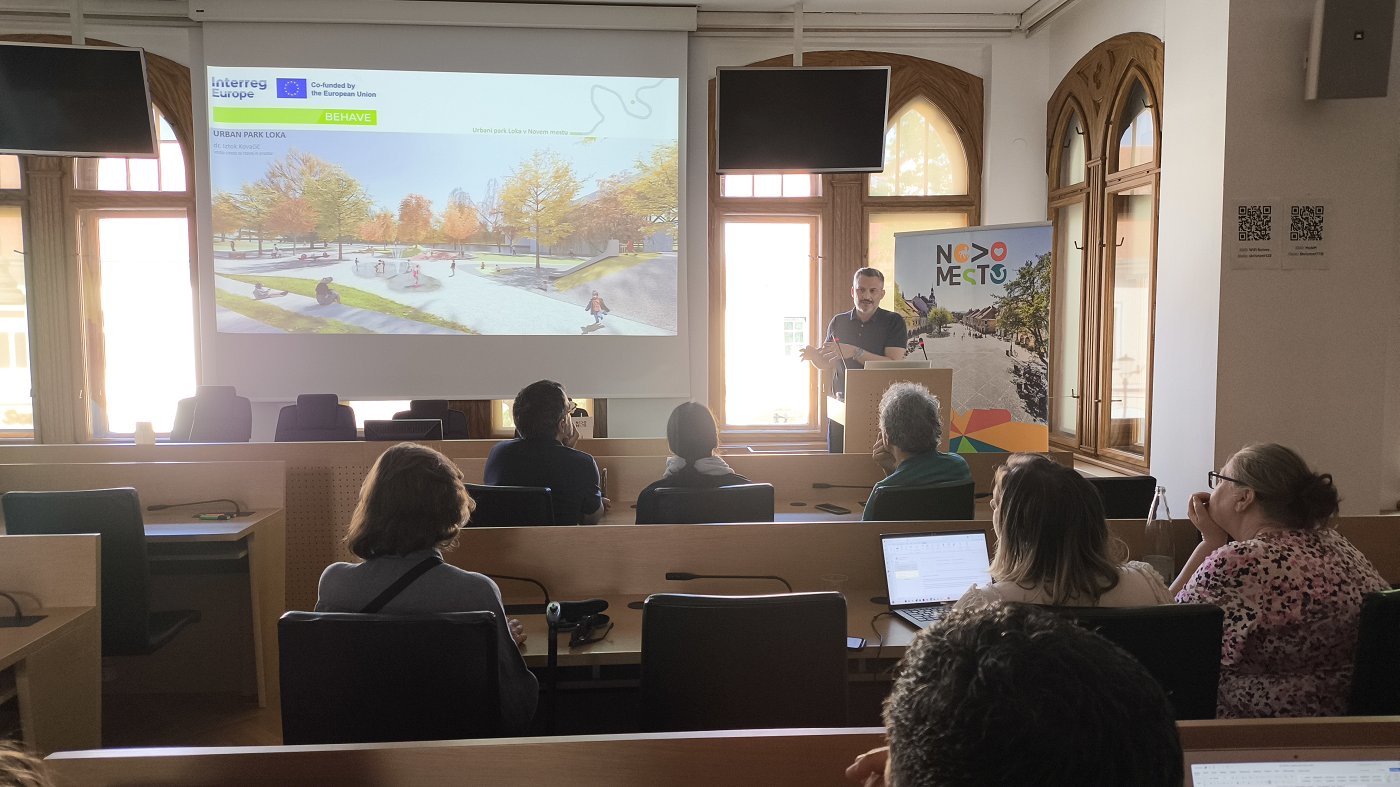
The central part of the meeting was a training and workshop on behavioural assessment and behaviour change, led by Fred Dorsimont from Behaven. The goal was to develop a practical understanding of core behavioural science principles to better analyse behaviour and integrate behavioural solutions into local waste management strategies. Applying what they learned, participants explored specific pilot sites in their own contexts, identified behavioural barriers, and developed solutions to real-world waste management challenges.
The entire meeting was professionally coordinated by ACR+ (the Association of Cities and Regions for sustainable Resource management), based in Brussels. ACR+ aims to promote sustainable resource management and provides its partners with access to best practices, tools, and expertise to support the implementation of cutting-edge waste management and resource recovery strategies — both within their territories and beyond.
The BEHAVE project, co-funded by the Interreg Europe programme with €872,984.40, receives an additional €118,150.00 from the Norwegian Financial Mechanism, while €360,711.60 comes from public and private project partners. It aims to study and evaluate citizen behaviour to improve waste strategies and increase separation rates. BEHAVE builds on behavioural science—the recognition that 95% of our behaviour is unconscious. To encourage sustainable habits, we must understand people’s routines and nudge them toward better choices through smart design and communication.
BEHAVE is not just a research project—it is a practical tool for cities and regions aiming to bring the circular economy closer to people and enhance waste management through human-centred approaches. It views public space as a space of opportunity, where small behavioural shifts can lead to big environmental impacts.
back